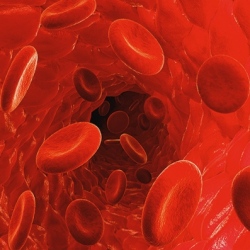
Our body has controls in place to regulate how cells grow and divide, which is useful in preventing the spread of disease. But when it comes to acute myeloid leukaemia (AML), an aggressive form of blood cancer, these controls are neutralized, giving the cancer cells free rein to multiply and grow uncontrollably.
Australian researchers have now discovered a protein that drives this process, and have shown that by blocking its activity they might be able to stop the deadly form of cancer in its tracks.
AML is a fast-growing blood cancer with a five-year survival rate of 24 percent. Chemotherapy is the main form of treatment for AML, but it brings with it a range of nasty side effects that include nausea, hair loss, diarrhoea and fertility problems. And to make matters worse, around three quarters of patients suffer relapses.
This long list of complications arising from currently available treatments is what makes the discovery by researchers at the Walter and Eliza Hall Institute of Medical Research so promising. They have not only found that a protein called Hhex is what facilitates the rampant spread of AML cells, but have determined that it is not needed by healthy blood cells so it can therefore be targeted without causing the typical side effects of current treatments.
"Hhex is only essential for the leukaemic cells, meaning we could target and treat leukaemia without toxic effects on normal cells, avoiding many of the serious side-effects that come with standard cancer treatments," explains Dr Matt McCormack from the Walter and Eliza Hall Institute.
"We also know that most people with AML have increased levels of Hhex, often associated with adverse outcomes, further indicating it is an important target for new AML drugs."
The scientists found that when they blocked the Hhex protein in preclinical disease models, they were able to entirely eliminate AML cells. The challenge now is to identify the critical parts of the protein that enable it to function, so drugs may be developed to block its activity.
